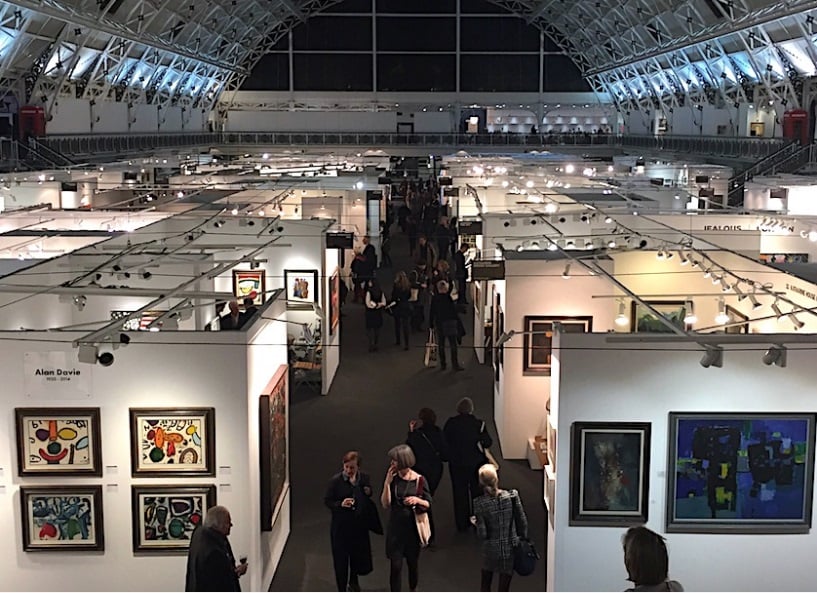
London Art Fair, 2018
Opportunities for emerging artists in market slump
Brexit has edged the UK's art trade out of the global top tier. It could mean more exposure for artists domestically.
A post-Brexit slump in Britain's art trade may offer opportunities closer to home, experts suggest.
The UK's share of the global art market has fallen to a historic low of 17%, down 3% in the past year alone. This shift, according to Art Basel and UBS' 2022 report, pushes the country from second to third place on the ladder behind the US and China.
While the value of the UK art market in fact grew by 14% to nearly £8.69bn last year, new VAT charges on EU imports and red tape at customs are making the UK less attractive to dealers, some of whom report costs that far exceed what they paid before Brexit.
READ MORE:
Up to £77m has been lost in the last two years alone. But further analysis indicates possible silver linings for new and emerging artists, whose work now makes up nearly half (47%) of collections owned by major UK art purchasers.
Consultancy ARTIQ says sales are picking up again after the pandemic and that corporate clients are increasingly interested in digital art and NFTs, as well as diverse and emerging artists. Post-Brexit regulations have "complicated transactions but not hampered them", COO Katie Terres said.
It has noticed a shift towards more engaging and experiential projects over static collections – "a clear move away from art for investment alone", she added.
"This includes artist talks, creative panels, classes from artists.
"There has been a tangible move from businesses and individuals to support the emerging market over more established artist practices."
Emerging market
Though the Art Market 2022 report notes collectors worldwide still favour established and mid-career artists, more than a third of new buyers are millennials.
Millennials purchase the widest variety of art forms (more digital and other non-traditional media) and the highest number of works each year.
While Boomers are still the highest spenders, emerging Generation Z collectors have dedicated the highest share of their wealth to art at 30%, the report says.
UK collectors are especially interested in NFTs – 89% had acquired one in 2021. Christie's Chief Executive Officer Guillaume Cerutti said there have been breakthroughs in selling digital art, and NFTs in particular.
"They have allowed us to showcase works by new emerging and under-represented artists, and to reach out to a new audience of younger clients."
Terres said there is "growing interest and openness" from art dealers to work in different ways, including partnering with agencies.
Spending among all generations has at least doubled since 2020. There is no indication, the report said, the pandemic affected art buying in "any negative, systemic way".
However, ARTIQ has seen an 82% growth in art rentals since 2017, "demonstrating uncertainty in art as an investment", Terres said, but more opportunities for income and exposure.
Online adopter
The UK has led the world in online art sales, a positive sign for capitalising on interest from younger, digitally native buyers.
Online sales dwindled in 2021 as in-person auctions and art fairs restarted, but remain more prevalent than before the pandemic. As in 2020, the UK had the highest share of fine art lots sold at auction online; last year these online sales were worth five times that of 2019.
Globally, two thirds of new buyers come from online channels, where they are arguably more likely to see contemporary art than that of long-dead European masters.
Christie's UK now holds half of its auctions online. Spokespeople said two thirds of its new buyers are entering the market via online sales, which were up 43% in value to £342m last year.
The report notes: "It seems likely that the trajectory of online sales in the art market will also stay positive, and unlikely that this share will return to pre-pandemic levels as collectors, dealers, and auction houses have become more accustomed to a higher level of digital interaction."
Join the Discussion
You must be logged in to post a comment.